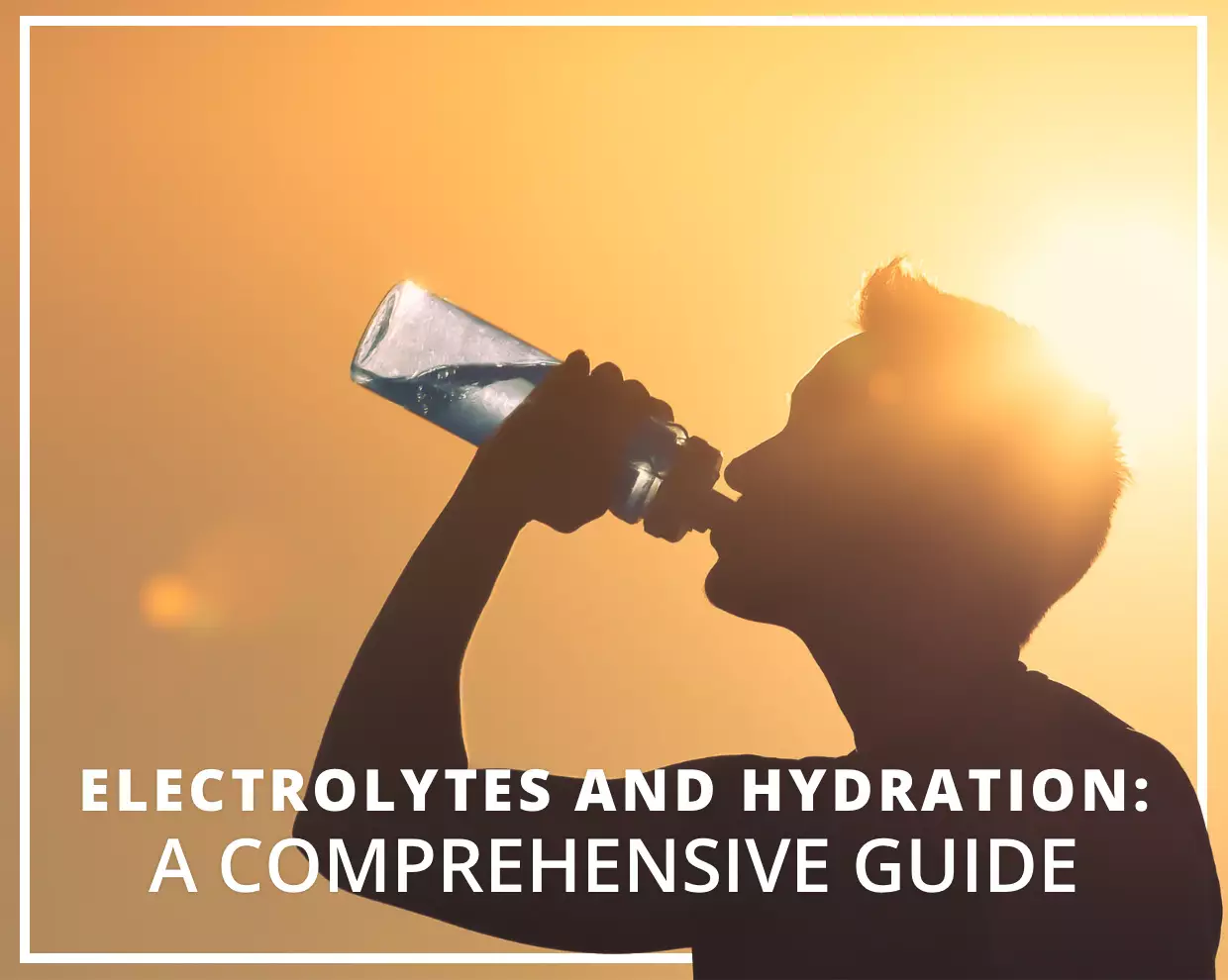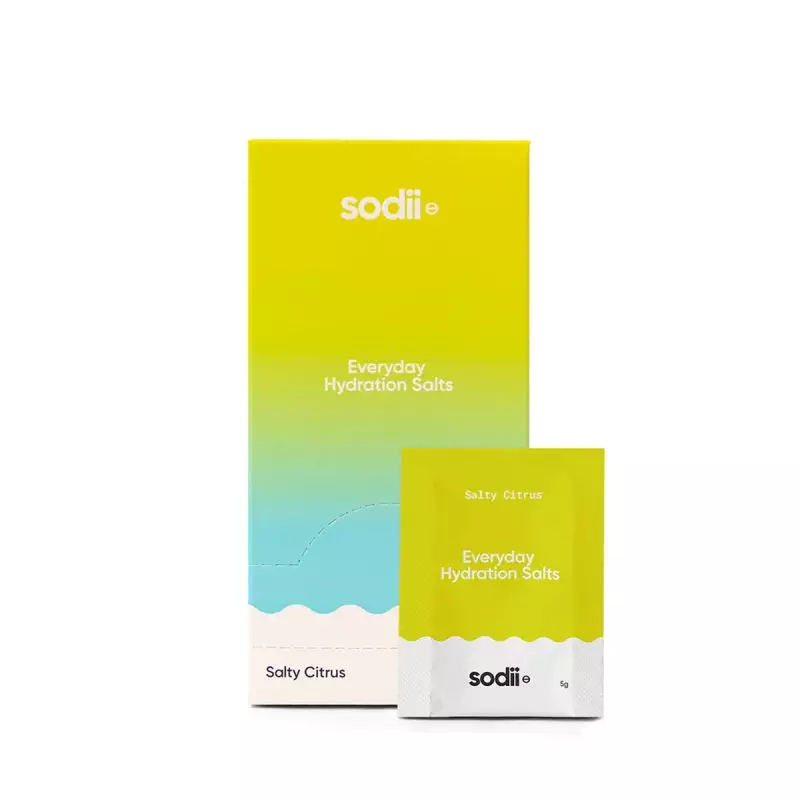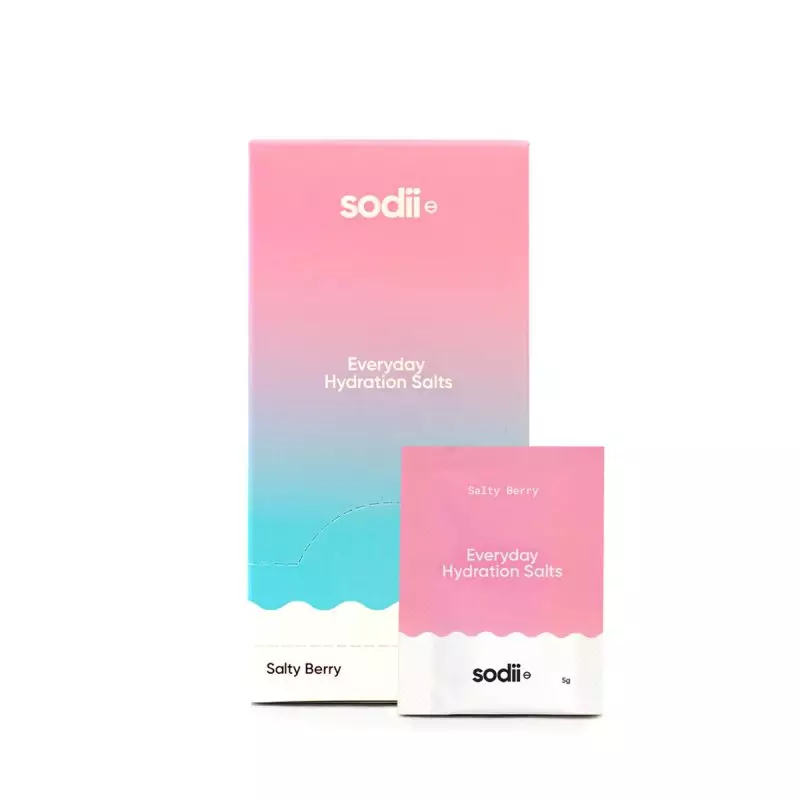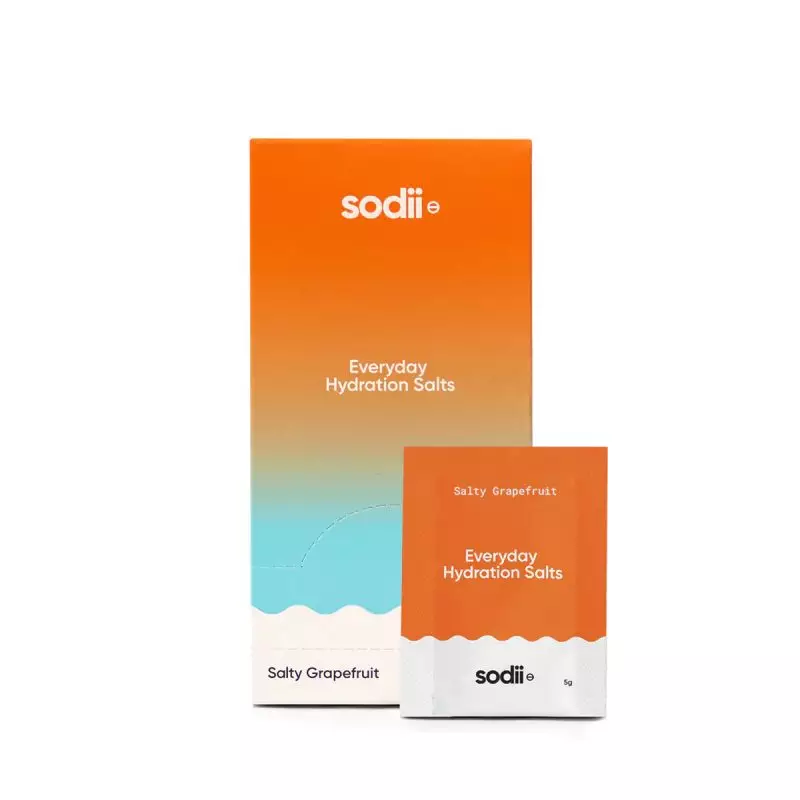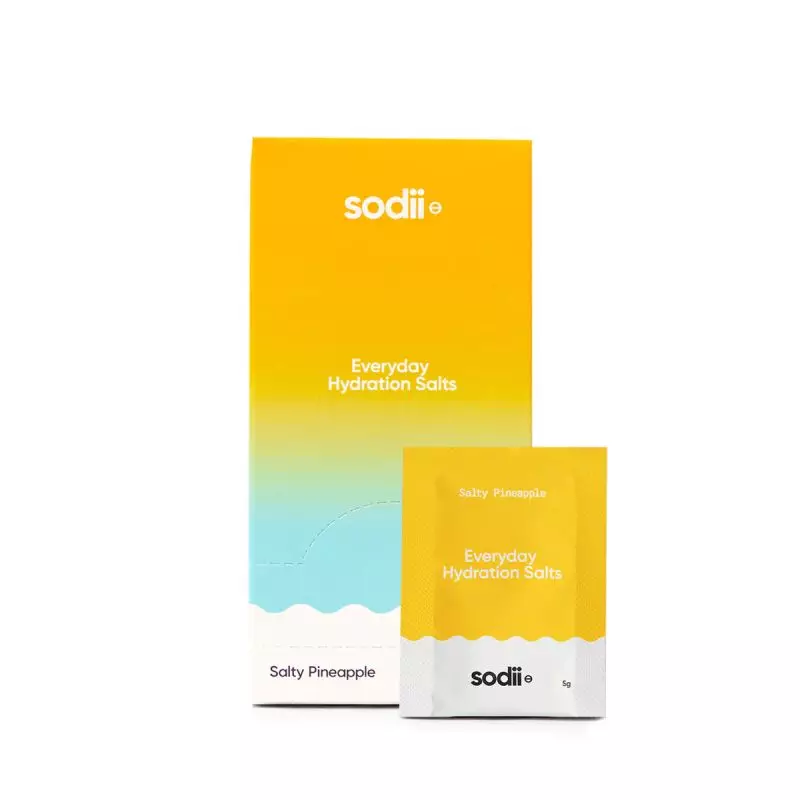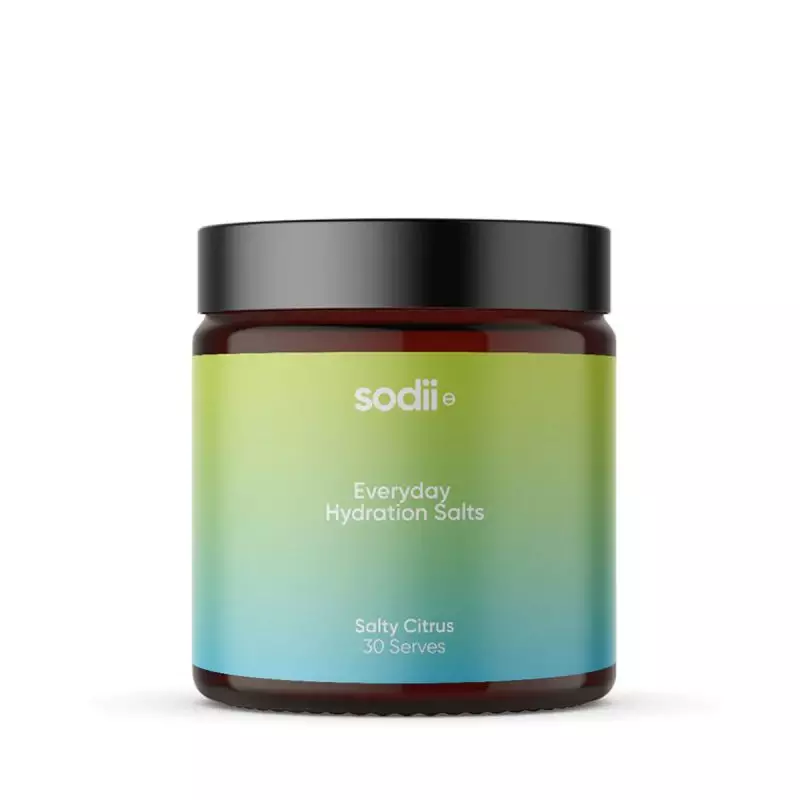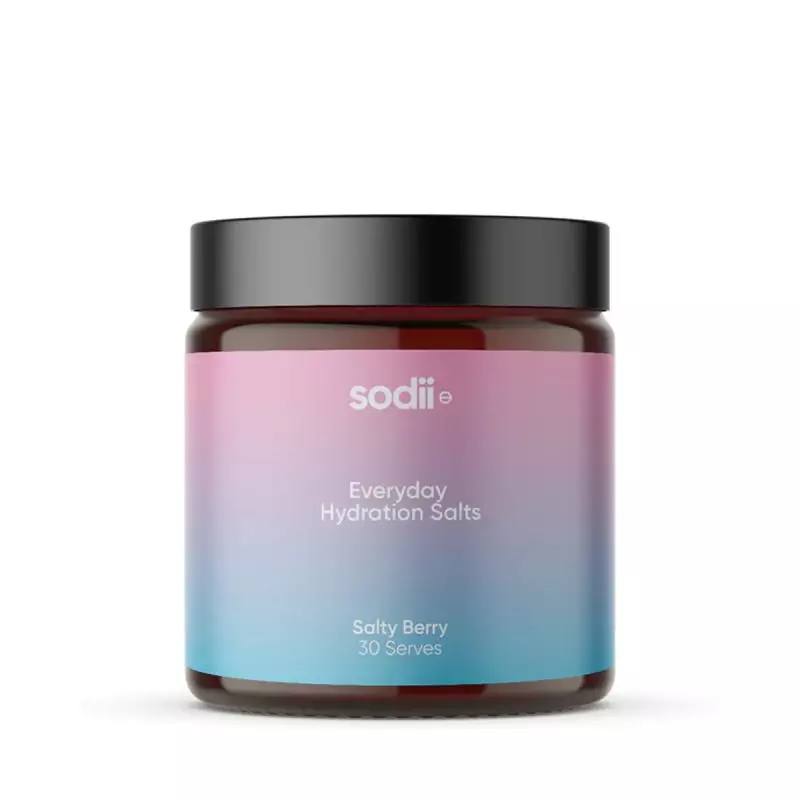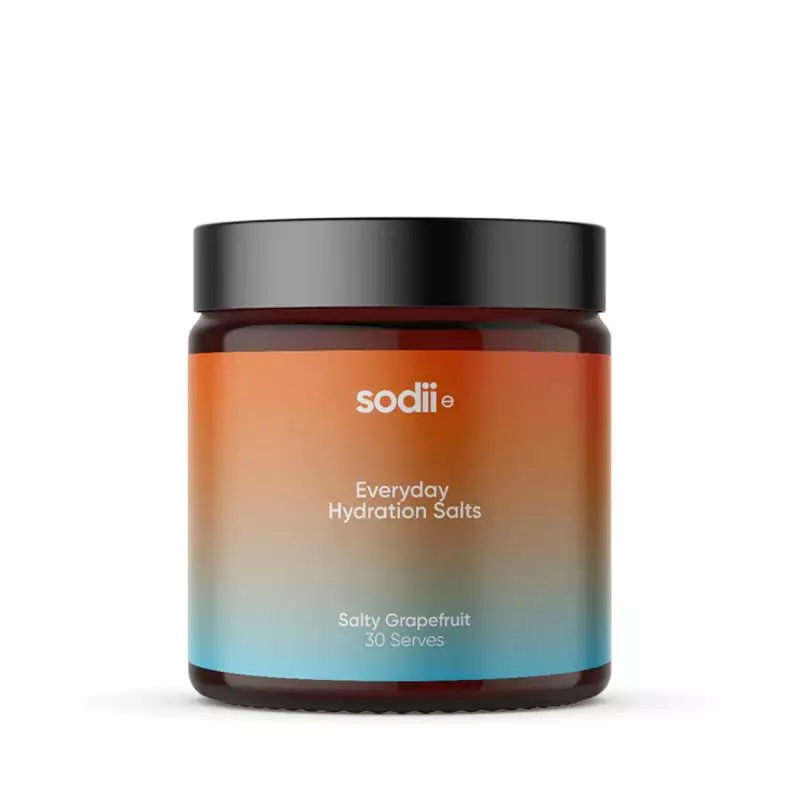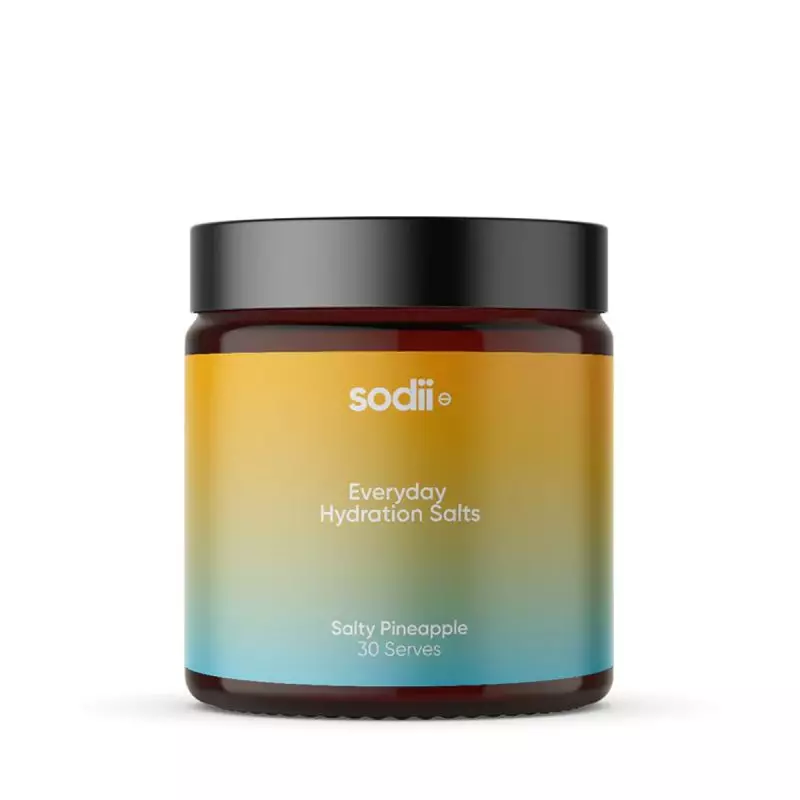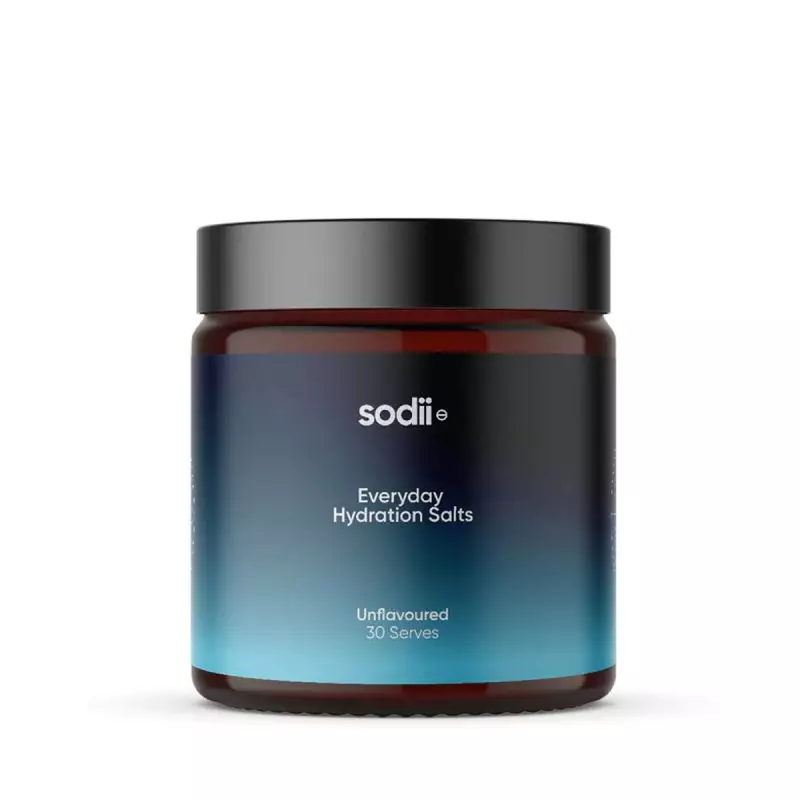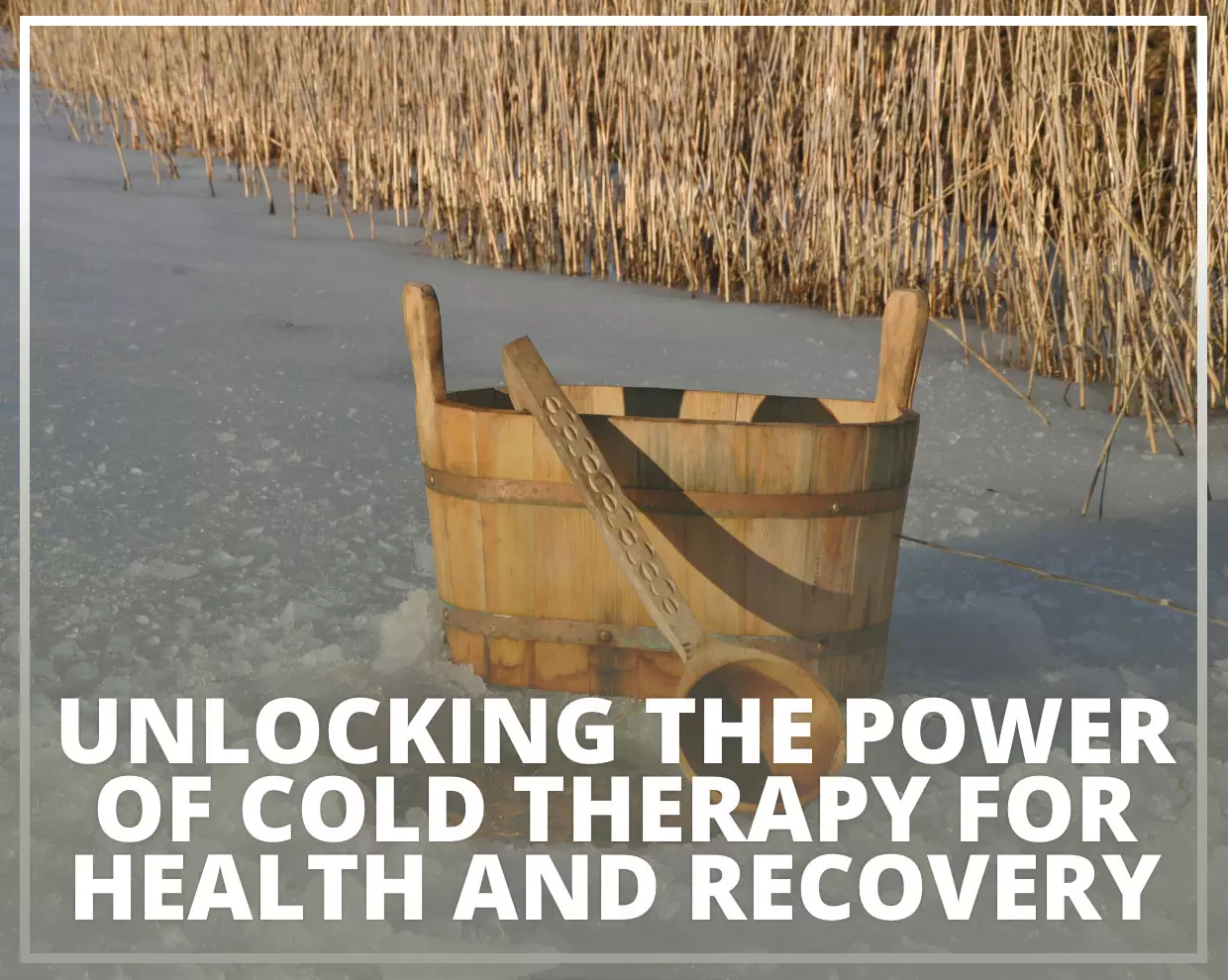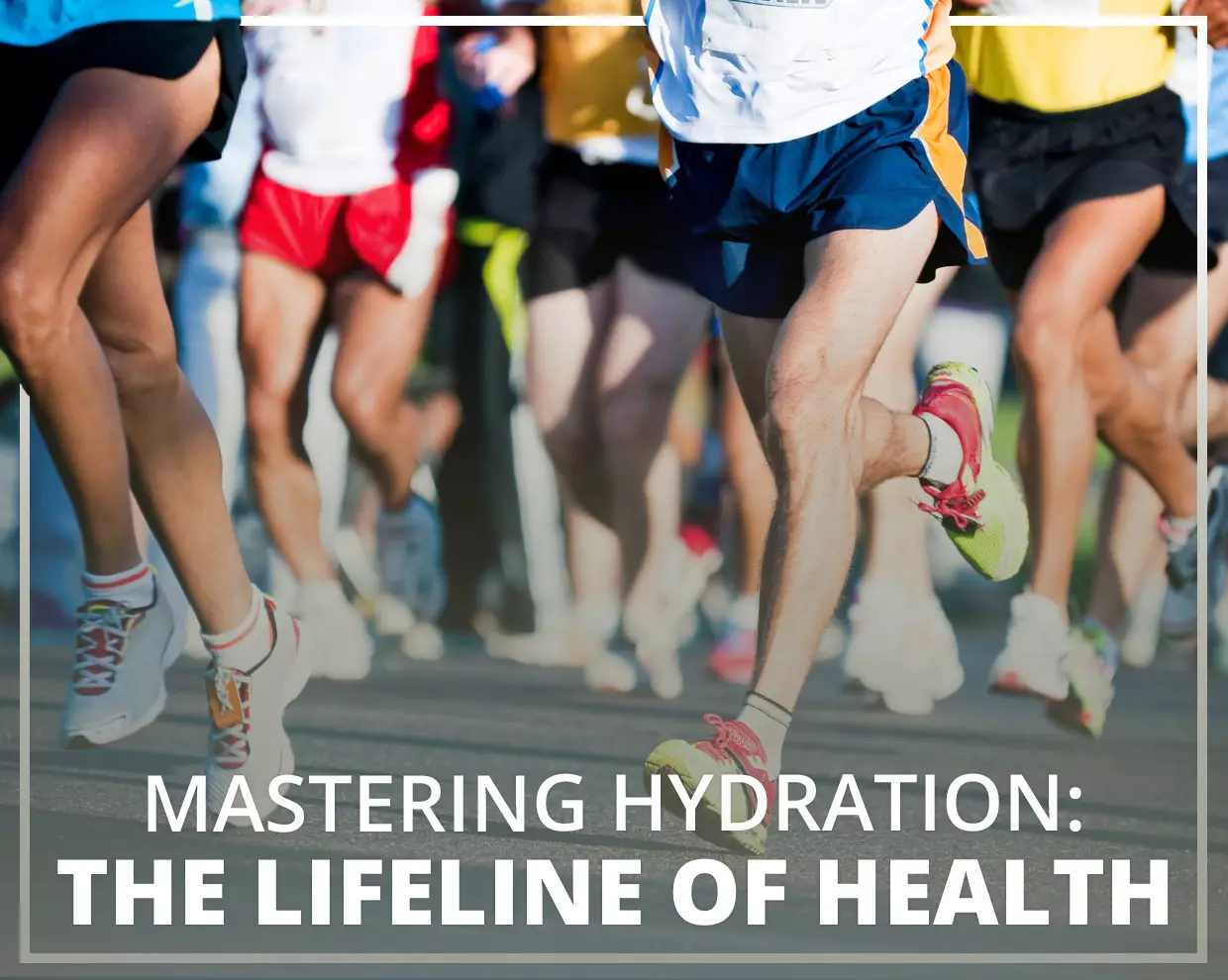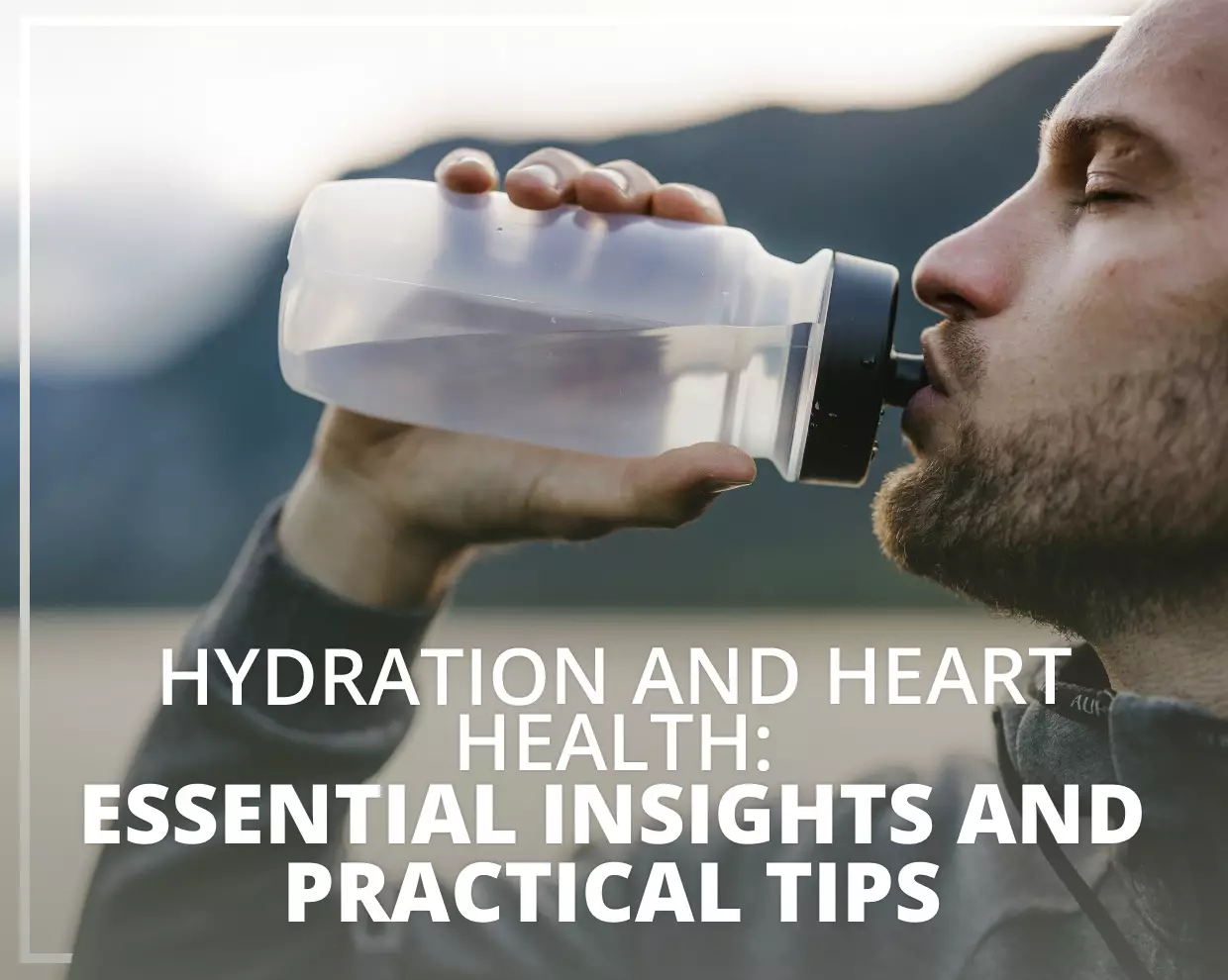Electrolytes are minerals with an electric charge that play an important role in keeping our bodies functioning healthily. They act as conductors of electricity, helping our cells and nerves communicate. Along with this, they may also help to regulate the balance of fluids in our bodies, which is supports healthy hydration.
Fluid balance helps to maintain good health and the functioning of blood vessels, brain, and muscles. In this health report, we will discuss the significance of electrolytes in our diet, when we should consume them, and the best sources of electrolytes. We'll also discuss the symptoms of low electrolytes, signs of electrolyte imbalance, and why electrolytes may help support healthy ageing.


Is it OK to drink electrolytes every day, or can I overdo it?
In general, it's safe to include electrolytes in your daily diet as part of a healthy lifestyle. However, it's important to consume them in moderation and as part of a balanced diet that doesn't rely heavily on processed snacks and meals.
Interestingly, a 2023 large population-based observational study conducted over a 25-year follow-up period found trends that may suggest that risk of death was higher in the low-sodium group than in the high-sodium group.
The study found that people with low-normal serum sodium levels (135–136.5 mmol/L) had a 71% increased risk of all-cause mortality compared to people with mid-normal serum sodium levels.
In contrast, people with high-normal serum sodium levels (144.5–146 mmol/L) had only a 21% increased risk of premature death compared to those with mid-normal levels.
Furthermore, the study found people with serum sodium levels above 142 mmol/L may have a higher probability of developing chronic health conditions. These individuals also scored worse on biological age (BA). [1] BA is not one's true (chronological) age, but rather a figure calculated based on biomarkers of overall wellness, such as blood pressure, cholesterol, blood glucose, and more.
When should I drink electrolytes?
The timing and frequency of drinking electrolytes may vary based on your specific requirements and objectives. If you're participating in intense physical activity, particularly in hot and humid environments, you may need to drink electrolytes to compensate for increased sweating and electrolyte loss. Additionally, if you're experiencing dehydration symptoms like fatigue, dizziness, thirst, dry mouth, or dark-coloured urine, consuming electrolytes may help to assist in rehydrating the body and replenishing lost electrolytes. Before and after exercise, you can drink electrolytes that may help to reduce dehydration and support normal muscle recovery.
However, it's crucial to plan ahead and avoid trying to replace lost electrolytes after they've been depleted. So, to ensure that your body has the necessary electrolytes, don't wait until it's too late!


Who should drink electrolytes?
Electrolytes may be useful for healthy individuals. These minerals perform a variety of essential functions within the body, from maintaining healthy bones, teeth, and muscles, to regulating nerve function. Calcium, iron, magnesium, potassium, and sodium are some of the most critical minerals that the body requires to function, and not getting enough of these minerals may lead to deficiencies and health problems.
In certain situations, however, the body may require an increased amount of electrolytes than normal. For instance, if you work in a physically demanding job, live in a hot environment, experience night sweats or illness, or donate blood, you may need to consume electrolytes to replenish the minerals lost through sweating or other bodily functions.
Dehydration can be especially damaging to healthcare workers, who often work long and grueling hours in high-stress environments. In a 2021 study, researchers surveyed 79 surgical trainees in general surgery, orthopedic surgery, and neurosurgery. They discovered that 91% of trainees reported experiencing dehydration symptoms in the operating room, with most of these symptoms occurring within the first six hours of the surgery.
70% of trainees frequently had symptoms like headache, constipation, and orthostasis. 71% reported that dehydration frequently impacted their performance, and women were more likely to experience dehydration symptoms, difficulty rehydrating, and performance issues. [2]
When dehydrated, the body struggles to perform its essential functions, which can lead to a range of adverse physical and mental effects that can impede a healthcare worker's ability to perform their duties effectively, manage stress and maintain a positive attitude when dealing with patients. Furthermore, dehydration can affect physical performance, making it more challenging to perform tasks that require strength and coordination, such as lifting and moving patients.


What are the symptoms of low electrolytes?
Low electrolytes can lead to a range of symptoms, which can vary depending on which mineral is imbalanced and the severity of the imbalance. Here are some examples:
- Low sodium (hyponatremia): headaches, weakness, low energy, fatigue, brain fog, insomnia, salt cravings, irritability or other mood disruptions [3]. The more serious symptoms may include confusion, seizures, extreme lethargy, light sensitivity, brain damage, and occasionally death. [4]
- Low potassium (hypokalemia): cardiac arrhythmias, slower heart rate, muscle paralysis, brain damage [5], muscle cramps, lethargy, tiredness, constipation, muscle weakness, feeling lousy or “off”. [6]
- Low magnesium (hypomagnesemia): irritability, muscle cramps, muscle weakness, tremors, involuntary muscle spasms (tetany), tinnitus, aggression, fatigue, anxiety or depression, confusion or disorientation, sensitivity to light, vertigo, problems utilising vitamin D, and overactive reflexes. Signs and symptoms of severe magnesium deficiency include cardiac arrhythmias, heart failure, high blood pressure (hypertension), rapid heartbeat (tachycardia), heart failure, coronary artery disease, soft tissue calcification, immunosuppression, migraines, osteoporosis, cataracts, and seizures.
While there are numerous concerns associated with mineral deficiency, the good news is that resolving the underlying cause of low electrolytes is relatively straightforward.


What is the best source of electrolytes?
Electrolytes are present in many types of food and drinks. Some of the most accessible sources of electrolytes include fresh spray-free fruits such as bananas, citrus, olives, avocados and pickle juice, as well as vegetables like sweet potatoes, squash, tomatoes, and leafy greens. Dairy products like cheese, milk, and yoghurt, and nuts and seeds like cashews, almonds, pumpkin seeds, and sunflower seeds, are also rich in electrolytes. Additionally, coconut water and electrolyte drinks and powders, such as Sodii, can be consumed to help maintain the body's electrolyte balance.
What is electrolyte imbalance?
Electrolytes can become imbalanced or deficient. An electrolyte imbalance occurs when the blood levels of a particular electrolyte become too high or too low. The severity of the imbalance determines whether the condition requires immediate medical attention. The most common hydration-related imbalance is hyponatremia, which is low sodium. Hyponatremia can be caused by consuming excessive amounts of plain water without the right balance of minerals. Low sodium is why many marathon runners finish the race feeling lethargic and sensitive to light.
It's important to note that for each electrolyte, there is a corresponding "too low" (hypo) and "too high" (hyper) blood level, and these imbalances are often caused by more serious issues like kidney problems, medical conditions, or medication use. However, maintaining a healthy intake of electrolytes through diet and supplementation can help prevent imbalances. The optimal intake for electrolytes is around 4-6g per day. [7] Sodii drink sachets make it easy to get the perfect ratios of electrolytes needed for optimal health, no guessing involved.
What is the best thing to drink when your electrolytes are low?
If your electrolyte levels are low, it's important to choose fluids that can help restore balance by replenishing lost electrolytes. Water, electrolyte drinks, powdered electrolyte mixes like Sodii, coconut water, milk or plant-based milk alternatives, and fruit juice are some of the best options to consider.


Healthy ageing with electrolytes
As we grow older, our ability to detect thirst decreases, which means we might not realise when we are dehydrated and hence may not drink enough water to replenish our losses. This is a significant concern since older adults are at a higher risk of severe injury or even death from falls, which can be exacerbated by dehydration. As a result, it's essential to pay more attention to hydration as we age.
According to a 2020 study involving over 30,000 patients, a surprising 38% were found to be at least mildly dehydrated, and those who were dehydrated had a 13% higher risk of falls than those who were well hydrated with a balanced electrolyte levels. [8] Another report suggested that dehydration may affects up to 60% of older adults. [9]
People with postural orthostatic hypotension (POTS) may be at an even higher risk. POTS is a condition in which blood pressure drops significantly when transitioning from a lying or sitting position to standing upright. Orthostasis is already a risk factor for falls, and when compounded with dehydration, it may lead to dizziness or even a momentary loss of consciousness upon rising, resulting in a fall. [8]
Summary
In conclusion, electrolytes play an important role in maintaining a healthy body and ensuring healthy physical and mental performance. A balanced diet that includes essential minerals such as calcium, iron, magnesium, potassium, and sodium is necessary to maintain healthy electrolyte levels. Electrolytes should be consumed in moderation and as part of a balanced diet that doesn't rely heavily on processed snacks and meals. Timely consumption of electrolytes can help prevent dehydration, especially during physical activity and in hot and humid environments. Low electrolyte levels can lead to a range of adverse physical and mental effects, while excessive consumption of certain electrolytes can also have negative consequences. Therefore, it's important to understand your body's electrolyte needs and consume them accordingly.
Note: The article is intended for informational purposes. For medical advice or information about specific products, it's advised to consult with healthcare professionals or refer directly to the product manufacturers.
References
[1] Middle-age high normal serum sodium as a risk factor for accelerated biological aging, chronic diseases, and premature mortality.
[2] Total fasting and dehydration in the operating room: how can surgeons survive and thrive?
[3] Salt craving: the psychobiology of pathogenic sodium intake.
[4] Hyponatremia.
[5] Hypokalemia.
[6] Potassium.
[7] U-shaped curve for association between sodium intake and CV events.
[8] Association between dehydration and falls.
[9] Is the prevalence of dehydration among community-dwelling older adults really low? Informing current debate over the fluid recommendation for adults aged 70+years.

 NZ Store
NZ Store  UK Store
UK Store AU Store
AU Store EU Store
EU Store

